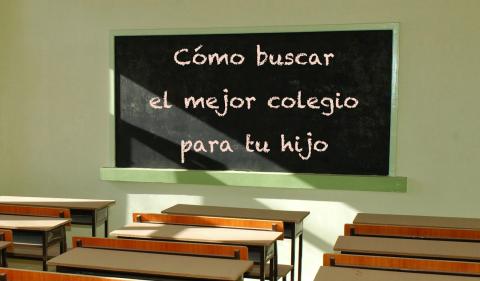
School is the place where our sons and daughters will develop, meet their first friends and plant the seeds of their professional future. Therefore, choosing a school is a complex decision. There is no ideal school that meets all our requirements, but here are 6 tips to help you find the best option.
1. Private, public or chartered?
This should be one of the first filters to consider:
- Private education: the school is financed by the parents and is authorised to establish its own criteria of values. These should be adapted to the education we want to give our children so that there are no contradictions.
- Public school: it is free and certain aspects such as proximity to home or the number of siblings studying there will give us more chances for our child to be accepted.
- State-subsidised (concerted) education: this involves paying a lower cost than private schools, as it is financed jointly with public funds. However, it must be taken into account that there are other expenses such as school materials or excursions throughout the year.
2. Method of teaching
Educational models are varied and the first question to ask is the nature of the educational project of the school in question. What methods are currently available? Basically, there are two: "traditional" and "alternative". The former consist of the traditional book, blackboard, teacher's monologue and notes. In the second case, the teacher guides the student and provides him/her with the tools to learn through dialogue, interaction and creativity. Which are better? It all depends on the type of education you want at home, there is no magic formula.
As infant school teacher Natalia Ocaña told to eldiario.es, if there are abrupt changes such as the shift from innovative project-based teaching to traditional teaching at secondary level, "there is no coherence". Ocaña also criticises the homework load in certain schools and, in particular, the quality of the homework: "It's not the same to do research on something that stimulates curiosity than to copy a drawing from a book in a notebook so that it looks nice and goes with the exercise".
Finally, within the question of educational method, it is important to check that the teaching staff act in accordance with the school's line. If a student sees how his or her teachers teach the subject at a different pace and, as a result, has to adapt his or her writing and structuring of ideas according to the teacher, he or she will feel confused.
3. The facilities trap
A large sports centre can be an attractive feature but it is not everything. Remember that a consolidated project is, in the long run, much more profitable than a pretty wrapper of new facilities. Also, schools look very spacious and well-lit when empty, but one thing to keep in mind is how they look when they are full of people. That's why you should prioritise visits during school hours. It's all very well having a music room, but if the children can't play their instruments, what's the point? Nothing better than visiting the school on a daily basis, talking to other parents about their experience...
However, we must bear in mind that we are entering an era in which new digital tools will condition our children's lives. Technological illiteracy can have a very serious effect on those who suffer from it, which is why computer literacy should no longer be a specific training, but should be present across the board in all education. Prioritise those centres that have facilities that allow children to become familiar with new technologies from an early age.
4. How is diversity being addressed?
It would be interesting to see if the school has a psychologist, a counsellor or some kind of support group for children with special needs. Another aspect to take into account is the policies for dealing with bullying. Emotional well-being is a guarantee of academic efficiency.
5. Practical questions
Here are some pragmatic questions to ask yourself:
- How many pupils are there per class? If the school has smaller classes, the attention to the child will be more personalised.
- How far is the school from my home? Sometimes the quality of teaching makes up for the distance. However, it is important to bear in mind that tiredness and isolation from new friends can have an impact on your child's school performance. We also need to find out about access to school by public transport so that the child can travel independently when he or she is older.
- What importance do they give to languages, is it a bilingual school, do they offer languages other than English and Spanish? In a few years, anyone without languages will lose any chance of a promising future.
6. Beyond academics
It's not all about reports and grades, is it? Your child's performance is also conditioned by other aspects such as their diet, health care and how they spend their free time. As for the nutritional aspect, it is important to investigate whether the school has a canteen: whether it has its own kitchen or catering, whether there is the possibility of preparing special menus in case of intolerances or allergies... On the other hand, if the school has an infirmary at its service it is essential for children with diabetes or in cases where they have to take regular medication (as well as to treat accidents in the playground).
Finally, what extracurricular activities do you offer? It has been proven that if a child takes part in extracurricular activities, he or she is not only more likely to join a new group of friends, but also to improve his or her performance. Sport, for example, gives children teamwork skills, values such as punctuality and commitment, not to mention the fact that those who do sport are healthier.
And now, explore all the possibilities in our search engine.